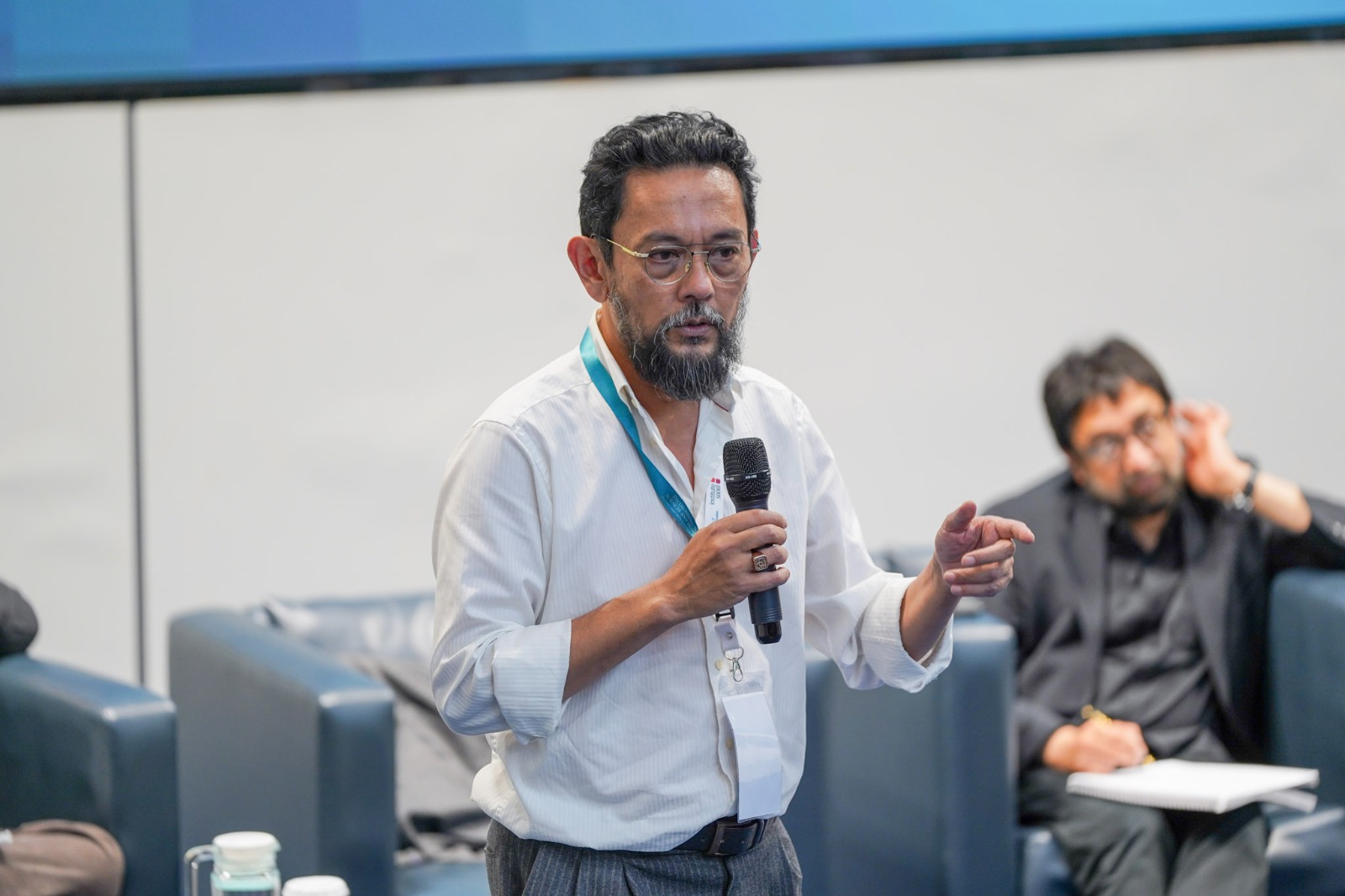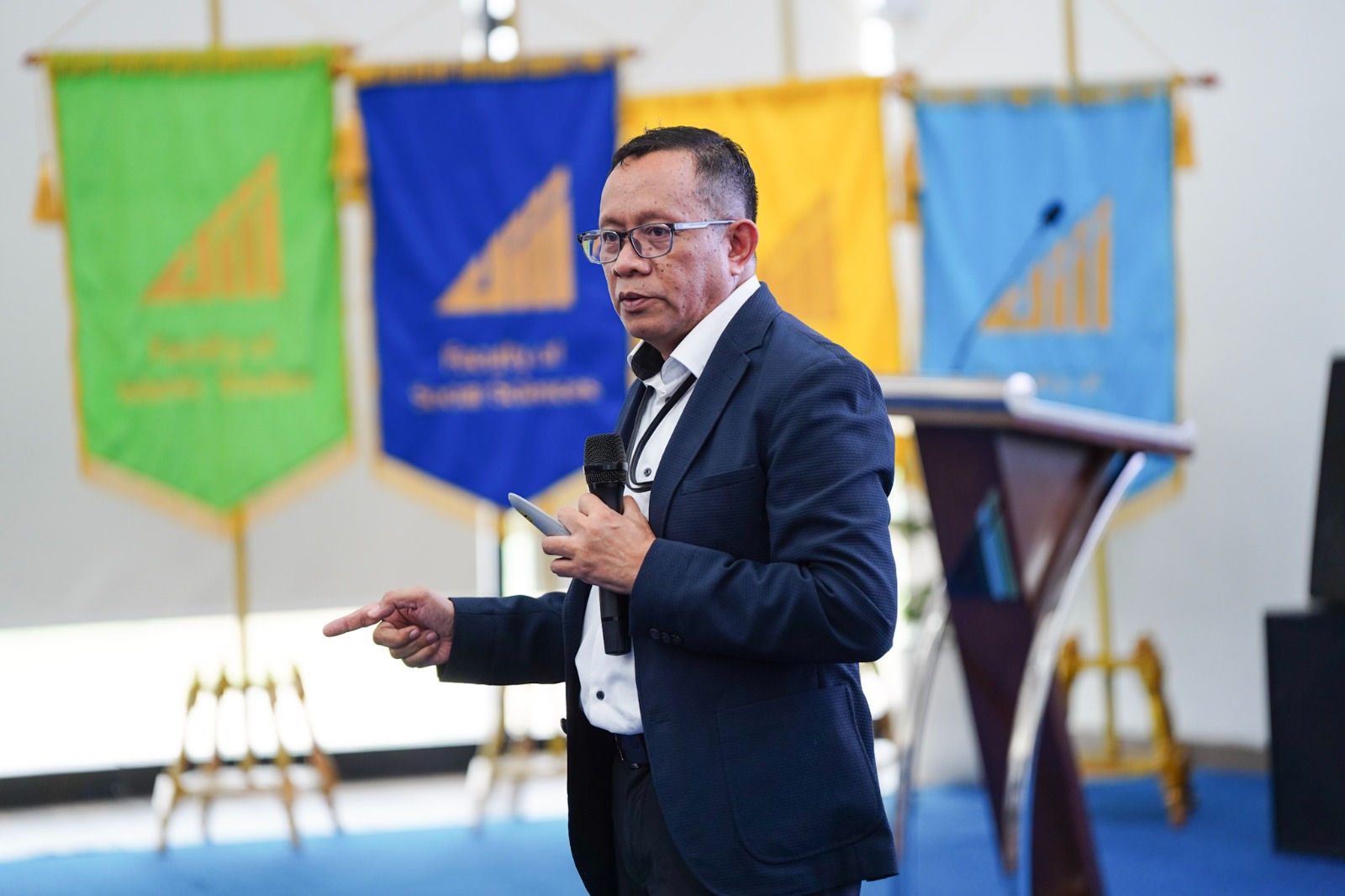More From News
UIII Builds a Bridge to Costa Rica
February 26, 2026
June 18, 2025
By Dadi Darmadi

DEPOK, Indonesia — 06/16/2025 – Nestled in the verdant outskirts of Jakarta, the Universitas Islam Internasional Indonesia (UIII) aspires to be more than a regional academic institution. With a diverse student body drawn from at least 40 countries across the globe, the university is poised to become a national flagship of international scholarship rooted in Islamic values. Yet, to fully realize this vision, scholars like Professor Farish A. Noor and Dr. Rifqi Muna, prominent voices in Southeast Asian academia–both are currently teaching at the Faculty of Social Sciences at UIII–propose a series of bold steps to elevate UIII’s global presence and foster a vibrant, inclusive campus culture.
Their recommendations, outlined during a recent meeting between UIII’s Office of Media and Communications and the International Office, offer a roadmap for UIII to cement its identity as a truly international institution. From symbolic gestures to substantive community engagement, these proposals aim to weave UIII into the fabric of both global discourse and local life.

A Visual Celebration of Diversity
First among the suggestions is a striking visual statement: lining the entrance to UIII’s campus with the flags of every nation represented by its international students. “It’s a simple but powerful gesture,” Professor Farish noted, drawing parallels to the United Nations’ iconic flag display. “It tells students, ‘You belong here, and your heritage is celebrated.’”
Such a display would transform the campus gateway into a vibrant corridor of unity, signaling UIII’s commitment to its global community. For students like Oummi, a graduate student from the Gambia, the sight of her country’s flag would be a reminder of home amid the challenges of studying abroad. “It would make the campus feel like ours,” she said.
A Forum for Global Ideas
To nurture intellectual exchange, Professor Farish and Dr. Muna advocate for regular seminars and discussions on pressing international issues—war, economic shifts, social change, and political dynamics. Held at least monthly, these events would leverage UIII’s unique asset: its diverse faculty and student body. “Imagine a Pakistani student sharing insights on conflict resolution, or a Malaysian lecturer analyzing ASEAN’s economic trends,” Rifqi Muna, Ph.D. said. “This is where UIII can shine.”
Collaborations with external experts, think tanks, and embassies could further amplify these discussions, positioning UIII as a hub for global thought. On another occasion, Dr. Chaider S. Bamualim, the university secretary said that UIII has already hosted occasional talks, but a formalized series would institutionalize this commitment. “It’s not just about prestige,” Dr. Chaider emphasized. “It’s about equipping students to navigate a complex world.”
Bridging Campus and Community
UIII’s international ethos must extend beyond its gates, argue the scholars. They propose robust community engagement programs, from visits to local schools and pesantren (Islamic boarding schools) to partnerships with social organizations in Depok, Bogor, and Jakarta. These initiatives would allow international students to contribute to their host society while fostering mutual understanding.
A recent pilot project saw UIII students teach students at a nearby school, an experience that left lasting impressions on both sides. “The students were curious about my culture,” said Kante, a student from Ivory Coast. “And I learned so much about Indonesian life.” Scaling up such efforts, Prof. Farish suggested, could make UIII a beloved neighbor rather than an isolated enclave.
Supporting the Student Journey
For many international students, the transition to life in Indonesia is daunting. To ease this, Mr. Yazid, UIII’s Head of International Office (IO), recommend forming a volunteer organization dedicated to supporting newcomers. This group would assist with everything from visa applications and housing to cultural integration, health services, and sports activities.
According to Dewi, a university staff who works for international students, such a system could have helped students who struggled to navigate bureaucratic hurdles upon arrival. “They often felt lost,” she recalled. A volunteer network, she believes, would have made all the difference. According to Rivaldy Sandika Putro, another IO staff said that by formalizing peer support, UIII could ensure its students thrive both academically and socially.
A Vision Taking Shape
UIII’s leadership has expressed enthusiasm for these proposals, with plans to pilot several initiatives in the coming academic year. The flag display is already under consideration, and a community outreach task force is being formed. Yet challenges remain—funding, coordination, and balancing local and global priorities will test the university’s resolve.
For now, UIII stands at a crossroads. By embracing these recommendations, it can transform into a global academic haven, where diverse voices converge to address the world’s most pressing challenges. As Professor Farish put it, “UIII has the potential to be a model for what an international Islamic university can achieve. The question is whether it will seize this moment.” []
Universitas Islam Internasional Indonesia